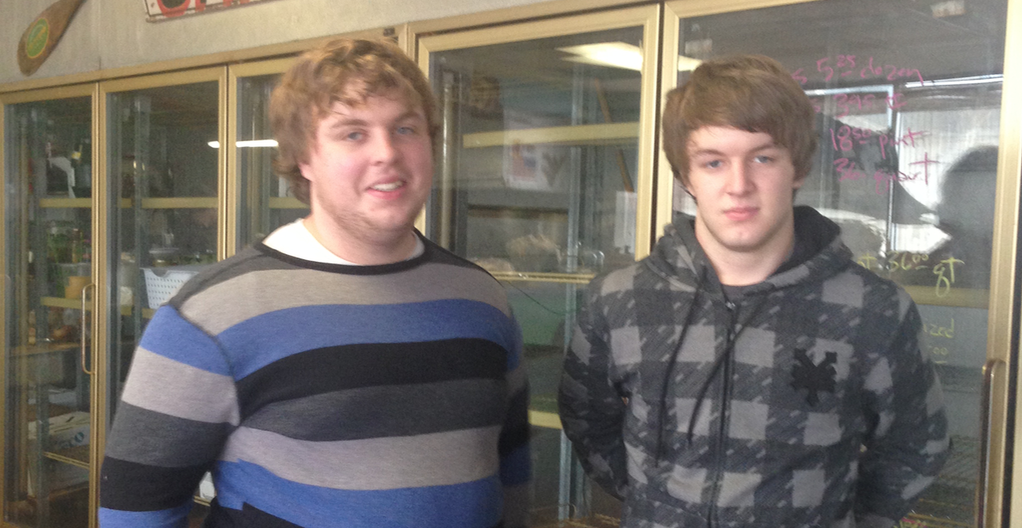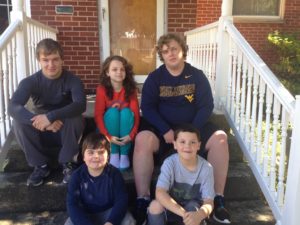
My motivation
Almost a year ago, I was in Washington State visiting my stepson, and I got the phone call that no parent wants to hear. My Mom called to tell me that my Dad had gone to check on my adult son because he hadn’t responded to a phone call, and found that he had passed away in his sleep. It was completely unexpected. My son, Isaac, was scheduled to work that evening and was excited about his new job. It made me happy to see how excited he was for work — dressing professionally, showing up on time, and being proactive about problems that he spotted in the day-to-day work in the shop. I couldn’t believe he could be gone at a time when so many new paths were coming into view. Nothing made sense.
I was in the middle of my Masters program at Lamar University, and thought I would probably have to quit. I didn’t know how I could stay in the program while experiencing such intense grief. I called Dr. Harapnuik, prepared to quit the program, and he agreed that I might need to take a break, understandably, but also informed me that the program is designed with some flexibility built in, so I could complete the coursework on my own time. He told me to take some time to figure it out, and to stay in touch so he could help me work out a plan. Ultimately, I found that the coursework gave me some normalcy and some connection to my son at a time when my world was completely torn apart.
The day before he died, I had a long conversation with Isaac about both of us making headway on our goals — he was getting ready to go back to school, and I was in the middle of my graduate program. He told me he was so proud of me for the work I was doing as a teacher, as an Apple Distinguished Educator, and through my coursework to become an advocate on a larger scale for better teaching and learning. I didn’t realize my son understood so much about what I was doing, but that conversation became the reason I simply had to persist in my grad work. I had many reasons to pursue this degree and to work for change in our schools, but my own children underscored my decision to do so — especially Isaac, who was gifted in so many ways but never felt agency in school. He was able to learn the most complicated techniques on his guitar, set up complex computer programs for recording music, and could hold his own in debates about politics with his stepfather, who holds a PhD in history. But he never felt the joy of success in school. I knew there had to be a better way for him to learn, but it didn’t exist in our current school system, or even in the private school I put him in so he could have more one on one attention from his teachers. When his brother, Joseph, experienced the same thing as a student; when my daughter, Olivia tested into the gifted program, but still complained she hated school; when my son Jon got into trouble at school regularly, despite getting good grades; and when my stepson, Kelan, also struggled with behavior problems at school, despite being academically gifted — I knew we needed to find a better way to teach and learn in schools.
 After Isaac’s passing, the grief was so intense that I needed a change of scenery. Over the summer, my husband and I moved across the country to pursue new career opportunities. Joseph stayed behind in West Virginia to go to school to become an electrician — the same program his brother had been ready to begin. My husband and I love the West Coast, and we are excited to start new adventures as we pursue new practices in California. And, though I miss him terribly, Isaac is always in my heart and mind as I work to build programs that empower students — all students — through giving them agency in their learning. I know that he would be proud of me, and that the best way I can memorialize him is to succeed at my goal of empowering all learners to find the joy of learning that Isaac found when pursuing his love of music.
After Isaac’s passing, the grief was so intense that I needed a change of scenery. Over the summer, my husband and I moved across the country to pursue new career opportunities. Joseph stayed behind in West Virginia to go to school to become an electrician — the same program his brother had been ready to begin. My husband and I love the West Coast, and we are excited to start new adventures as we pursue new practices in California. And, though I miss him terribly, Isaac is always in my heart and mind as I work to build programs that empower students — all students — through giving them agency in their learning. I know that he would be proud of me, and that the best way I can memorialize him is to succeed at my goal of empowering all learners to find the joy of learning that Isaac found when pursuing his love of music.